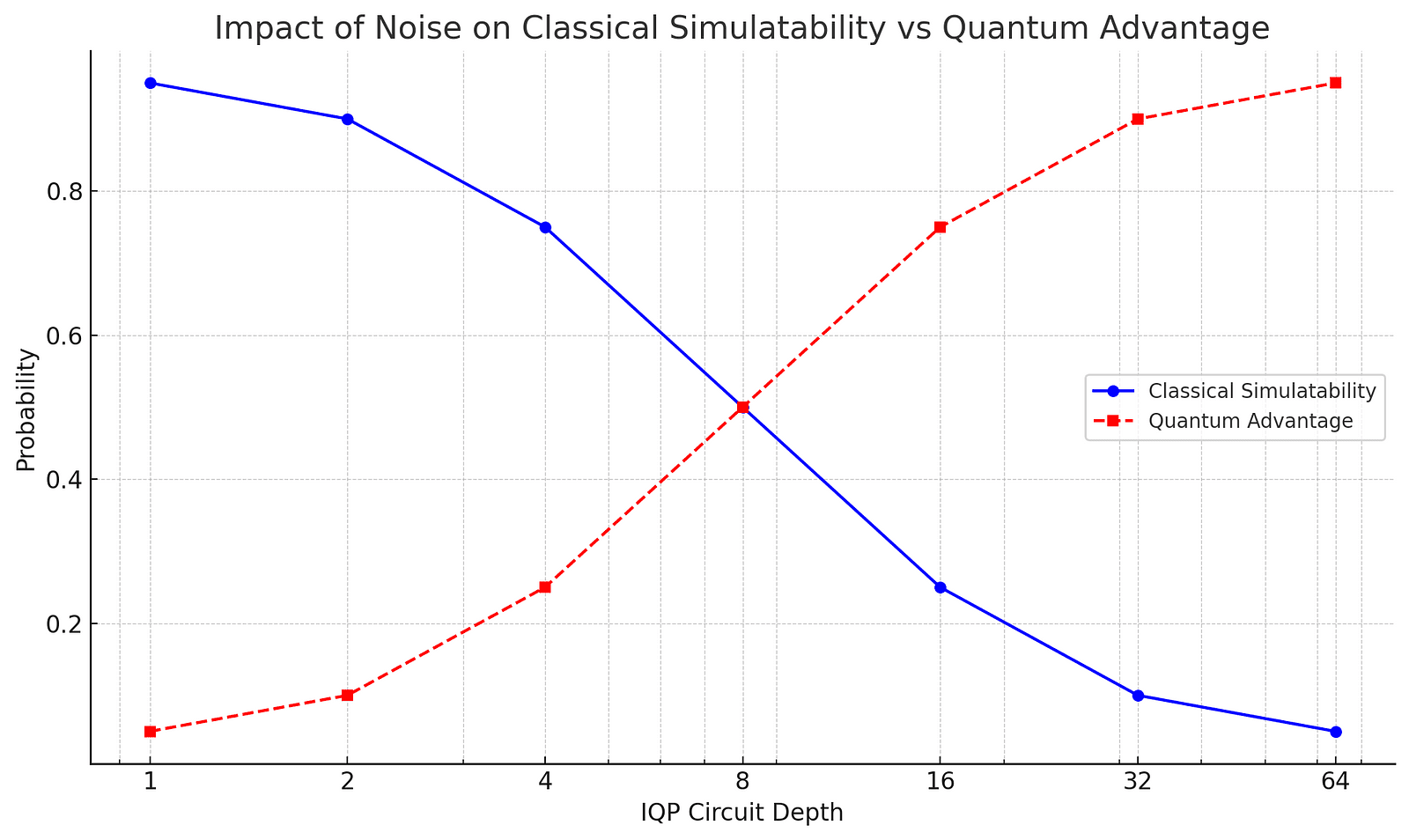
Quantum computing stands on the brink of revolutionizing our computational capabilities, with instantaneous quantum polynomial (IQP) circuits at the forefront. Unlike traditional circuits, IQP circuits are defined by their unique structure, where gates commute, eliminating the concept of temporal order. This peculiarity makes them classically hard to simulate, highlighting the inherent power of quantum computing. The critical insight comes from recent findings that challenge the quantum supremacy premise by demonstrating classical simulation of noisy IQP circuits beyond a certain depth threshold. This breakthrough not only shifts our understanding of quantum advantage but also redefines the boundaries between classical and quantum computational realms.
The Double-Edged Sword
The intricate dance between quantum computing and noise unveils a landscape where imperfections hold the key to understanding. Noise, while often seen as an adversary to coherence and quantum properties, has been shown to facilitate classical simulation of quantum systems under certain conditions. In the context of IQP circuits, noise induces a phase transition in connectivity, effectively reducing complex quantum entanglements to simpler, classically simulatable components. This phenomenon not only highlights the nuanced role of noise in quantum computing but also offers a roadmap for navigating the quantum-classical boundary.
Bridging Worlds
The advent of a polynomial-time classical simulation algorithm for noisy IQP circuits marks a pivotal moment in quantum computing. By leveraging noise to disentangle quantum circuits, researchers have crafted an algorithm that efficiently approximates the output distribution of IQP circuits, once thought to be a bastion of quantum supremacy. This leap not only challenges the exclusivity of quantum systems to perform certain computations but also democratizes access to quantum-like computational power, opening new avenues for exploration and innovation.
To provide a clearer understanding of the transition between classical simulatability and quantum advantage as we delve deeper into the IQP circuits, let’s explore the graph below. It visually captures how noise influences these two aspects over varying circuit depths, offering a vivid illustration that complements our discussion.

Navigating the Quantum Future
The implications of simulating noisy IQP circuits extend beyond theoretical conquests, touching the very fabric of technological advancement. From optimizing complex systems to unraveling the mysteries of quantum mechanics, the ability to classically simulate quantum circuits opens new horizons across disciplines. Moreover, this breakthrough serves as a beacon, guiding efforts towards fault tolerance and robustness in quantum computing, ensuring that the quantum future remains bright and within reach.
Quantum Supremacy’s New Challenge
The classical simulation of noisy IQP circuits challenges the notion of quantum supremacy, showing that classical algorithms can, in some instances, keep pace with quantum advancements.
Noise as a Catalyst
Unlike its traditional disruptive role, noise facilitates the classical simulation of quantum circuits by predictably reducing quantum entanglement.
Broad Implications
This breakthrough has wide-ranging implications, from cryptography to quantum algorithm development, highlighting the interdisciplinary impact of quantum computing.
Accessibility and Democratization
The ability to simulate quantum computations on classical computers democratizes access to quantum computational power, broadening the scope of research and innovation.
Fault Tolerance and Robustness
Insights from classical simulation algorithms contribute to enhancing fault tolerance and robustness in quantum computing, paving the way for more resilient quantum systems.
The Quantum Frontier
The journey into the realm of quantum computing, particularly through the lens of IQP circuits and their classical simulation, unveils a future ripe with possibilities. This exploration not only demystifies the complex interplay between quantum mechanics and computational science but also serves as a testament to human ingenuity and the relentless pursuit of knowledge. As we stand on the cusp of the quantum era, the insights gleaned from classical simulation algorithms illuminate the path forward, offering hope and inspiration for future generations to dream big and venture boldly into the uncharted territories of quantum computing.
About Disruptive Concepts
Welcome to @Disruptive Concepts — your crystal ball into the future of technology. 🚀 Subscribe for new insight videos every Saturday!







